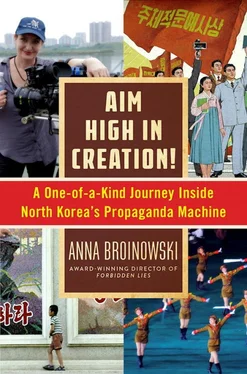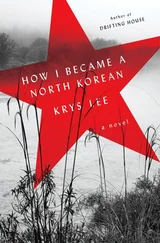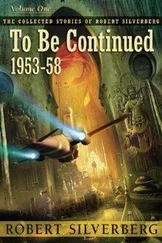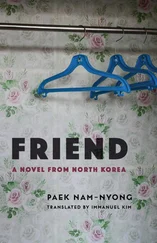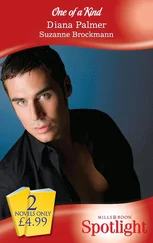Unlike his father, Junior 2.0 had no competition for the top job: Kim Jong Il thought his other sons were idiots. Junior 2.0’s oldest brother, Kim Jong Nam, whose existence Kim Jong Il had hidden in the 1970s by sending his mother’s relatives to the gulags, cosseting him in private villas with miniature movie sets and child-sized sports cars, had grown up to become an over-indulged playboy. In 2001, Kim Jong Nam was caught attempting to get into Tokyo Disneyland on a fake passport and Kim Jong Il promptly dumped him as successor. Junior 2.0’s second oldest brother, Kim Jong Chul, was last seen at an Eric Clapton concert in Singapore and was always considered by Kim Jong Il to be “too feminine” for leadership. Which left the 28-year-old Kim Jong Un—international man of mystery, and now the world’s youngest head of state.
According to Kenji Fujimoto, the defected sushi chef I failed to track down in Tokyo, Kim Jong Un likes shark’s fin soup three times a week, just like his dad. He also “knows how to be angry and how to praise. He has the ability to lead people… he loves basketball, roller-blading, snowboarding, and skiing… I watched him play golf once and he reminded me of a top Japanese professional.” I look at the chubby, Swiss-educated Kim Jong Un being mobbed by female athletes on the sports page of the Pyongyang Times . He seems cheeky and upbeat—more Prince Harry than Prince William. The sort of prankster who’d have a healthy Twitter profile and an active network of drinking buddies; a guy who’d go to a costume party dressed as Hitler for kicks. Then again, it’s July 2012. Kim Jong Un hasn’t executed anyone—yet.
I unbuckle my seatbelt and sneak a look at the passengers. They are a perfect hybrid of the Mad Men cast and a 1950s Soviet documentary. The women wear lacy twinsets and pink lipstick. The men sport starched white shirts, tortoiseshell glasses, and dark, boxy jackets. Many are reading the Pyongyang Times . The story about the Junsan farmers is open on laps, with a picture of a ten-metre sign on a cliff over the breathless assertion that “the People carved letters on the rocks in reflection of their boundless respect for the revolutionary exploits of Dear Leader Comrade General Kim Jong Ilwho devoted his life to the sacred cause of the prosperity and the wellbeing of the People, generation after generation.”
I think even Rupert Murdoch would baulk at the excesses of the Pyongyang Times.
Just when things can’t get much stranger, the hostess serves me a hamburger. It sits in a yellow-and-white wrapper on a small plastic tray. It is icy cold. And heavy. Closer inspection under the bright yellow bun reveals a patty made from three types of unrecognizable meat, and what appears to be a pickle. This must be Kim Jong Il’s famous “meat with two breads sandwich.” I haul the thing up to my mouth and take a bite. It tastes like no burger I’ve ever eaten—intensely salty and sweet, and strangely delicious. Apparently, not all foreigners think so: under the tray is a white paper bag, stamped with the Air Koryo crane and a helpful suggestion: For Your Refuses .
As we descend over the misty hills encircling Pyongyang, I see something I’ll never forget. Below us, in a rice paddy next to the airstrip, is a group of waving farmers. They are all women, and look like they’ve stepped straight from one of the North Korean music videos on YouTube: rosy-cheeked and stout, with floral head scarves and thick cotton skirts bunched around their waists. We draw closer, and I can see they are carrying straw baskets, from which they hurl fresh-cut flowers at our plane. They are singing and dancing, waving frantically at us as they run. They seem to be filled with joyous ecstasy, simply because we’ve arrived. It’s completely surreal.
PYONGYANG AIRPORT IS A LARGE METAL shed with a baggage carousel down one side and two souvenir counters on the other. Kims Senior and Junior look down from the wall. Junior 2.0 is notably absent. There are no other pictures, and only two queues—one for foreigners to hand in their mobiles, and one in which soldiers herd passengers towards a stern guard in a customs booth. The whole place seems to have been passed through a monochromatic filter—everything, from the uniforms of the guards to the suitcases on the baggage rack, is a shade of grey. Perhaps it’s the low-wattage bulbs. Or the lack of neon. Popping through the gloom like golden ingots are our bright yellow duty-free bags. They look like alien life forms in this faded world: new and loud and made of plastic—stubborn stowaways from Planet Capitalism.
I catch up with Nick and Lizzette, still a little spooked by my encounter with the Air Koryo hostess. The form she gave me demands that I declare “all weapons, ammunition, explosives and killing devices; all drugs, exciters, narcotics and poison… publishing of all kinds, including type, unit and quantity.” I have no idea how to explain the note hidden in my sock, let alone the Vanity Fair I bought in Beijing. Kristen Stewart from Twilight is slouching in a strapless gown on the cover, and a poll inside says 66 percent of readers answered the question “Would you go to North Korea if it was free?” with “You’ve got to be joking.” I tug Nick’s sleeve, whispering behind my hand: “Is Vanity Fair ‘offensive literature?’ Should I declare it?” Nick chuckles, takes my travel documents, and calls out to the customs guard: “Oi! Tongji!” Astonishingly, the guard breaks into a wide grin. Nick is clearly famous around here. Relieved, I leave him to negotiate, and study the souvenirs. There are stamps of the Leaders, hand-carved toothpicks and two slim, pale-blue phrasebooks.
If I didn’t already know I was in North Korea, I do now. Welcome. Speak in Korean! lists the five words foreigners are most likely to use in Pyongyang: “Comrade! Waiter! Driver! Interpreter! Guide!” The other one’s a dictionary—of sorts. Under the word “Respect,” the English–Korean Workbook offers the phrase “We respectfully wish President Kim Il Sung, the respected Leader, a long life.” “War” brings up “The Fatherland Liberation War.” “Square” mentions “Kim Il Sung Square.” And the words “Propaganda,” “Murder,” “Oppression,” “Dictatorship,” and “Poverty” are not in the book at all. At least, not directly—when you look up “March,” “The Arduous March” appears.
Nick jokes his way through the queue, and we’re soon out under the pale sun in a small car park. Ms. K hurries through the crowd and kisses Nick on the cheek. She’s shorter than I imagined, and wearing a bright pink shirt. The square jaw and mannish features are still there, along with the no-nonsense hair—part bob, part eighties mullet. But she’s soft-voiced and sweet, almost cuddly. Nick kisses her back, and she blushes. I am so grateful for what she’s done to get us here, I want to give her a hug. Instead, I smile brightly and hold out my hand: “Thank you for having us, tongji .” Ms. K flinches. Tongji is how you address comrades older than yourself. I’ve pegged Ms. K at fifty. Clearly, I am wrong. She narrows her eyes: “You can already speak Korean.” It doesn’t sound like a compliment.
Nick chuckles and promises Ms. K he’ll get the crazy Aussie to get her eyesight tested. Lizzette makes a gracious remark about the balmy weather and soon Ms. K is smiling again, climbing into the front seat of an unmarked van beside Nick. They giggle together like teenagers as Lizzette and I pile into the back. The driver flicks his cigarette away without acknowledging us and slides the door shut. We pull out, then stop at a gate beside the highway. A soldier, no more than twenty, peers in at me. He wears the same jacket I saw in Choi’s movie in Seoul and a huge hat decorated with a cheap-looking red plastic star. The thin fabric and fake brass buttons make his uniform look like it’s been sourced from a discount costume store: “North Korean Bad Guy” dress-ups. Then I see the Kalashnikov on his back and the bayonet in his belt. His eyes dart from my North Korean dictionary to my face, more curious than suspicious. He nods, steps back, and waves us on.
Читать дальше
